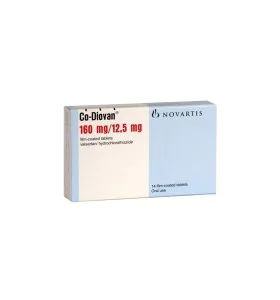


Blend of two compounds: Hydrochlorothiazide (HCTZ), used for hypertension, increases squamous cell carcinoma (SCC) risk in transplant recipients by amplifying UV damage. A study found no link with basal cell carcinoma (BCC). SCC’s severe outcomes in immunosuppressed individuals demand careful consideration of alternative antihypertensive treatments. Emerging evidence positions valsartan as a dual-action drug: a cardiovascular protector and a redox-modulating agent. By reducing oxidative and glycation stress, valsartan targets underlying contributors to hypertension and endothelial dysfunction. Its ability to improve antioxidant capacity while maintaining excellent safety and tolerability highlights its importance in modern treatment protocols, offering comprehensive benefits for patients with complex cardiovascular and metabolic conditions.
Mil, K.M., Gryciuk, M.E., Pawlukianiec, C., Żendzian-Piotrowska, M., Ładny, J.R., Zalewska, A., and Maciejczyk, M., 2021. Pleiotropic properties of valsartan: Do they result from the antiglycooxidant activity? Literature review and in vitro study. Oxidative Medicine and Cellular Longevity.
Letellier, T., Leborgne, F., Kerleau, C., Gaultier, A., Dantal, J., & Ville, S., on behalf of the Divat Consortium. (2020) 'Association between Use of Hydrochlorothiazide and Risk of Keratinocyte Cancers in Kidney Transplant Recipients', Clinical Journal of the American Society of Nephrology.
Disclaimer: Information provided it this page is for general information only and does not substitute for professional medical advice.
For detailed information about Co-Diovan 172.5 by Novartis, consult with your doctor or healthcare professional.


Letellier, T., Leborgne, F., Kerleau, C., Gaultier, A., Dantal, J., & Ville, S., on behalf of the Divat Consortium. (2020) 'Association between Use of Hydrochlorothiazide and Risk of Keratinocyte Cancers in Kidney Transplant Recipients', Clinical Journal of the American Society of Nephrology.

Letellier, T., Leborgne, F., Kerleau, C., Gaultier, A., Dantal, J., & Ville, S., on behalf of the Divat Consortium. (2020) 'Association between Use of Hydrochlorothiazide and Risk of Keratinocyte Cancers in Kidney Transplant Recipients', Clinical Journal of the American Society of Nephrology.

Mil, K.M., Gryciuk, M.E., Pawlukianiec, C., Żendzian-Piotrowska, M., Ładny, J.R., Zalewska, A., and Maciejczyk, M., 2021. Pleiotropic properties of valsartan: Do they result from the antiglycooxidant activity? Literature review and in vitro study. Oxidative Medicine and Cellular Longevity.